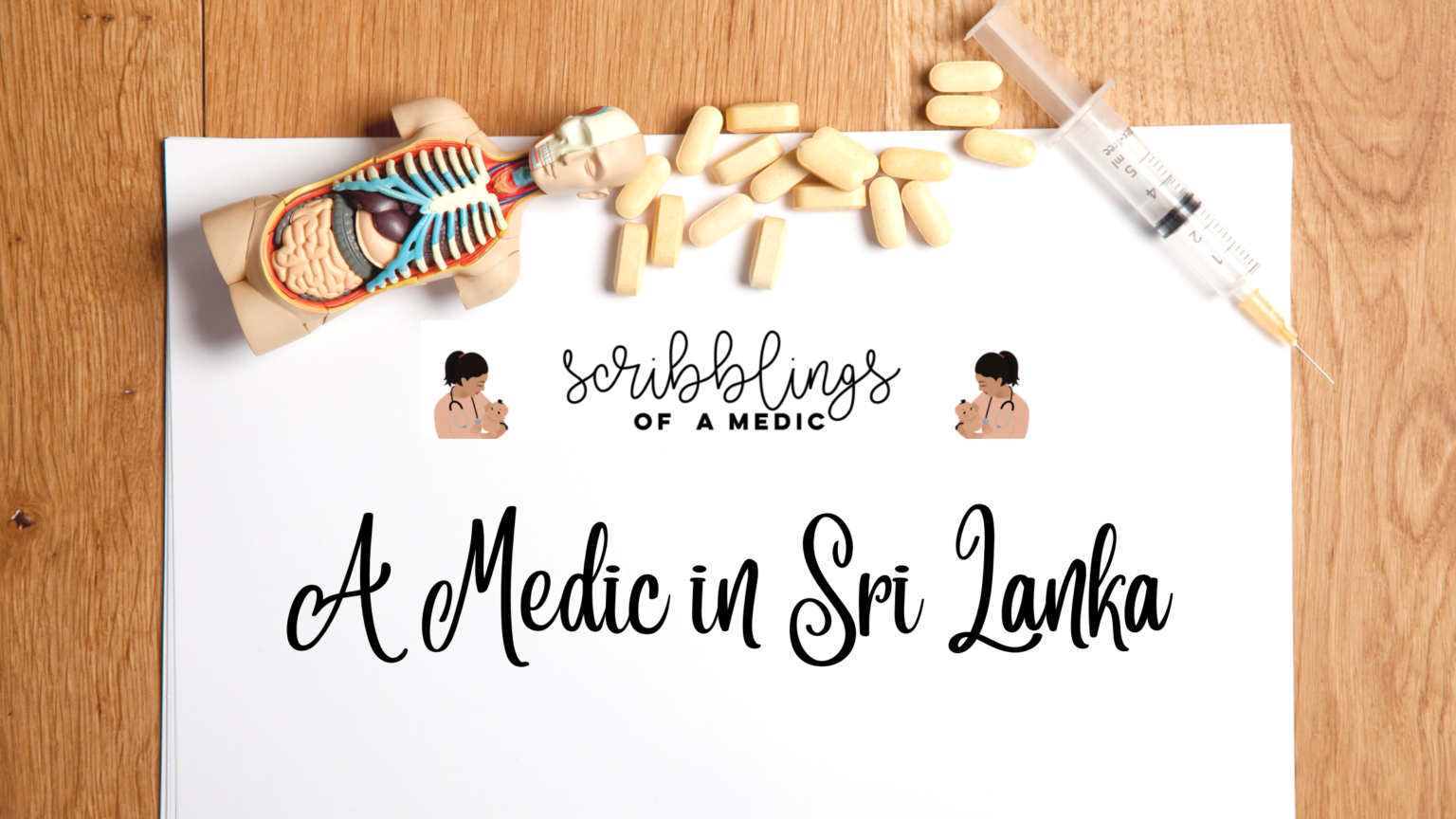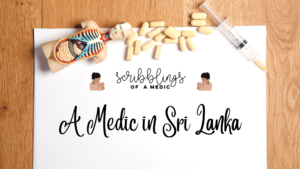Working countless hours in high pressure situations with constant belittling is no easy task, and hence it is no wonder that medical students and doctors tend to “burn out”. I don’t mean the spontaneous momentary break downs when you question life (we’ve all been there!), but I mean the point when we become too physically and mentally exhausted to function.
Over the decades, medicine has tremendously evolved – the drugs we distribute, the conditions being diagnosed, the protocol we follow and even the way we doctors are educated. In many countries like Sri Lanka however, the pressure, long hours and stress put on medical students and doctors has not changed. Many doctors from the older generation still believe in working 24/7 around the clock as they see it as a vital part of any practitioner’s clinical skills and professional development. I really don’t believe they have (nor had) a life outside medicine, and despite being a huge noble sacrifice, it is also incredibly sad.
I was recently having a chat with a friend of mine who is still climbing her way through the notorious world of Sri Lankan law. She, like me, had similar fears of burning out, and that’s when it hit me that it isn’t just the doctors who work ridiculous hours with the burden of stress. Anybody in any occupation is at risk of burning out and it is important that you notice it before you are totally knocked out by it.
Figure 1 & 2: I recently did a poll about implementing work time limits for doctors in Sri Lanka, and the results weren’t that shocking.
My experience
What I experienced was not your typical burn out, but something that I think quite a few people experience. I think I realized a change in my thinking before it got to the point of burn out.
As a medical student and junior doctor, I was in love with medicine and my life primarily revolved around medicine as expected. I initially enjoyed the stress, pressure and intense work environment that I experienced during my internship, but slowly I felt the whole process becoming monotonous and the passion I had for medicine was slowly disappearing. This was a scary period because to me because life as I knew it was no longer funtional and I didn’t feel motivated anymore. It was the same old stress, running for emergencies and a lot of breaking bad news. This is not to forget the long work hour shifts with minimal to no rest. During my internship year the stress was so bad that numerous times I got little to no sleep on days that I wasn’t on call. In addition to the intense work environment, being away from my family in a rural part of the country meant constant travelling about 4-5 hours each way. This was really physically exhausting and I would have to get to my hospital a whole day earlier because it would take me a whole day to recover from the trip. All of this accounted to me taking some time off to clear my head and now I absolutely love all the different jobs I get to do.
Exhaustion is one aspect of burn out, but what about the patient unsafety? Working despite physical and mental exhuastion increases the chance of errors, some of which can be fatal. Doctors are after all, human. We get tired and fatigued, whilst still having to work. Unfortunately, grave mistakes do occur and it is the patient who has to be victim to this even though the doctor does not intend to cause you any harm. So far Sri Lanka does not have any laws regarding the working hours of doctors and as explained in the picture above there are pros and cons to it, but read on below for some of the messages I received from my instagram family. Many western countries have been forced to establish laws around working hours for doctors because of the death of patients that occurred due to this.

Figure 3-5: Some of the messages I received from my instagram followers about the need for working hour limits for doctors in Sri Lanka.
If you feel like yourself or one of your colleagues are on the verge of burning out, do seek help from a trusted senior or peers. Even taking one day off can make a huge difference to your mood. During internship, my family/husband would take turns visiting me every other weekend and my amazing co-HO (intern) would let me go off early on the saturday and do the night shift as well (I would do the same when her husband would visit). Regular day trips with my colleagues during my 2nd year of training also helped, because we were all in different units and it gave us the opportunity to have a day away from the hospital (really helps when you are in the peripheries with very little to do when you’re not working). Find a hobby or interest that as the famous Marie Kondo would say, “sparks joy”!
Always remember that if you are not a 100%, you can’t give your patients your best. Us doctors are so busy taking care of others that we always forget to take care of ourselves, but we must. Especially if you work in a country with no working time regulations. I love hearing people’s opinions about working hours for doctors. What do you feel about the working hours of doctors? Do you agree with the laws regulating working hours of doctors in countries like the United Kingdom or Australia? Do comment below!









